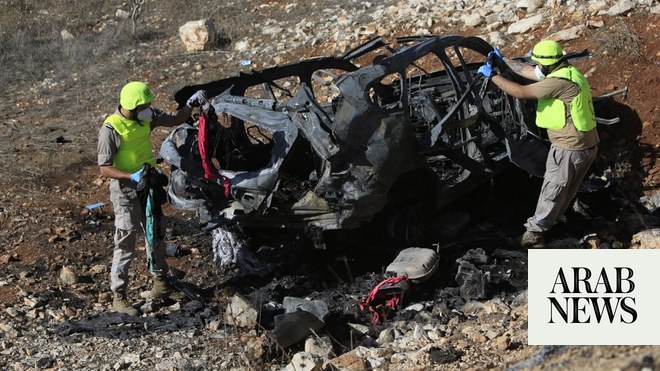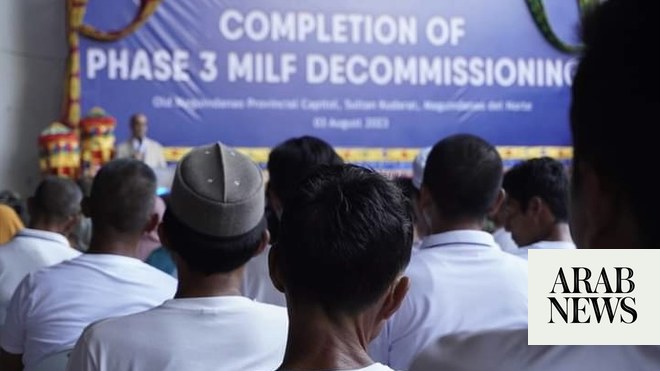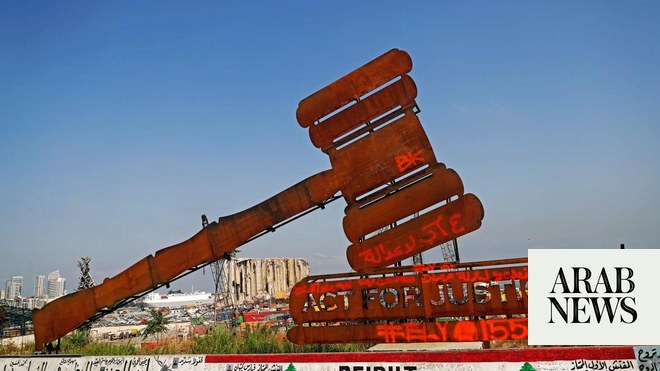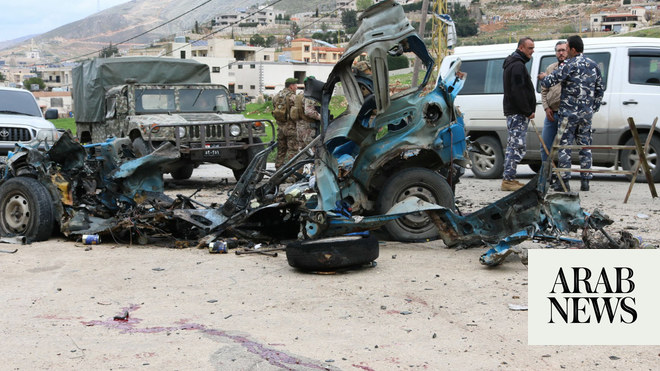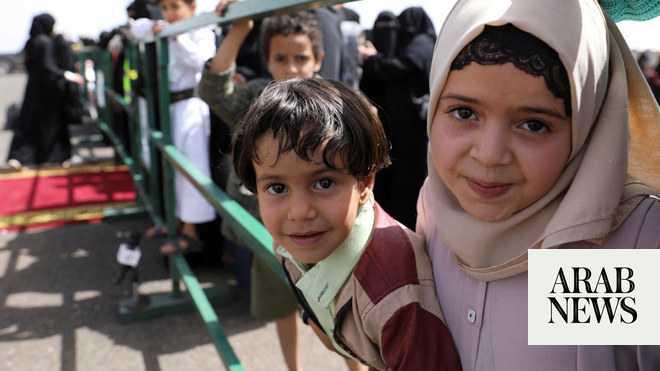
BEIRUT: Growing fears of fresh Israel-Hezbollah conflict as Syrian war expands
A United Nations peacekeeping force is marking 40 years of deployment on the Israel-Lebanon border where calm has prevailed since 2006 but there are growing fears the Syrian war may spark fresh conflict.
Since the month-long summer war almost 12 years ago that saw Israel fighting Shia Lebanese Hezbollah militants and causing massive destruction, the UN Interim Force in Lebanon (Unifil) has held monthly, “tripartite” meetings between Lebanese and Israeli officers that have contributed to an uneasy peace.
Many wonder how long this peace will last given the geopolitical rivalries of countries including Israel and Turkey now being played out in Syria. Meanwhile, Unifil quietly marked its creation on March 19 with low-key events and speeches.
Unifil’s name includes the word “interim” because its existence was seen as temporary after the 1978 Israeli invasion of southern Lebanon.
The force now has around 10,300 troops from 41 countries but they are estimated to be outnumbered by Hezbollah by at least five to one. Nonetheless, the force has become an embedded presence in southern Lebanon.
“We enjoy strong ties between Unifil and the communities in our area of operation. We live with them in their 141 villages and interact daily with them,” Andrea Tenenti, Unifil spokesman, told Arab News.
“And since the first day of our deployment in the south, we brought with us doctors and medical aids and we helped many injured and sick people. There was a need for our presence not only as peacekeepers but at a humanitarian level as well.”
Unifil’s limited mandate has not stopped locals from criticizing the force and believing, for example, that it could have prevented the 2006 war, which killed hundreds of Lebanese civilians. But its mandate has changed little since 1978: to confirm the withdrawal of the Israeli army and to help the Lebanese government reassert control of the area.
Unifil is not equipped to fight wars and the countries that contribute troops do not expect them to engage in combat. It does have a small navy of six vessels to ensure no weapons are smuggled into Lebanon but it has found mostly narcotics, not arms.
Control of southern Lebanon remains firmly in the hands of Hezbollah, which has boasted of massive rearmament since 2006.
Tenenti said Unifil did try to investigate reports, often made by Israel, of Hezbollah storing weapons in houses, mosques and health centers. “We perform 450 security patrols every day, and we are accompanied by the Lebanese army in 70 percent of them,” he said.
At the entrance to the Unifil headquarters in Naqoura, the last coastal village before the border with Israel, stands a monument to commemorate the 312 Unifil members who have lost their lives over the last four decades through Israeli bombardment, landmines, or accidents while on patrol.
The peacekeepers of many different nationalities communicate in English and some speak a few words of Arabic with local residents.
Mohammad Saab, mayor of Shebaa and head of the Al-Arkoub municipalities’ union, described his relationship with Unifil as “excellent.”
“They have become part of the population and they are offering services that the government failed to provide, such as electricity, by offering generators and street lighting as well as sanitation networks and health services,” he told Arab News.
He recalled when members of the force first arrived. “I was 30-years-old when Unifil forces arrived in Shebaa. When the Norwegians came, five girls from Shebaa and four girls from Al-Habbariyah got married to Norwegian soldiers. When the Spanish forces came, they taught our children their language,” he said.
“Now we have the Indian force, whose members learned to make tabbouleh [salad] and raw kibbeh [meat patties]. We don’t know yet what we’ll learn from them, maybe Indian food.”
He said the “younger generation is learning discipline from Unifil and are eager to learn the culture of these soldiers and their traditions.” He also praised Unifil’s “swift response” when Israeli forces arrest shepherds who accidentally crossed the border.
Zuheira Al-Sayyed from the border town of Beit Leef also remembers when Unifil first arrived. “I was a young child and I watched them from my window. I wondered how did they leave their countries to come to ours where there is war to offer us their services?”
Several of her relatives married soldiers from France, Italy and Switzerland and they come back with their children every summer, she said. “We are not going to abandon our traditions, they respect them and they are good-hearted people.”
Hussein Saad, head of the municipality of Tayr Debba, said any Lebanese hostility towards the peacekeepers was caused by suspicions of support for Israel.
“Most of the clashes occur with the French, Italian and Spanish forces and not with others because of the support of their countries to Israel,” he told Arab News. “This is how the locals think.”





